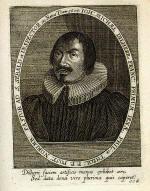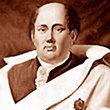1713 - 1739 Person Name: Anna Schendlerin Hymnal Number: 361 Author of "Süßer Heiland, Deine Gnade" in Die Glaubensharfe Dober, Anna, née Schindler, was born April 9, 1713, at Kunewald, near Fulnek, Moravia. She went to Herrnhut in 1725, and in 1730 joined her friend and townswoman, Anna Nitschmann (q.v.), in forming the "Jungfrauenbund" (i. Cor, vii. 32-34, Rev. xiv. 4) of the unmarried sisters at Herrnhut. On July 13, 1737, she became the wife of L. J. Dober (consecrated Bishop, 1742, died at Herrnhut, 1766), then General Elder of the Moravian Church. After assisting him in his labours for the conversion of the Jews at Amsterdam, she died at Marienborn, near Budingen, Hesse-Darmstadt, Dec. 12, 1739 (Koch, vi. 324). A faithful and gifted servant of Christ, she was the author of numerous hymns, full of personal devotion to her Lord, and of deep trust in Him; which passed into the Moravian collections, that of 1778 containing 18 by her.
Of one written May 26, 1735, beginning "Süsser Heiland deiner Gnade" [No. 1023 in Appendix ii. to the Herrnhut Gesang-Buch, 1735, in 13 stanzas of 4 lines, and translated as "Far greater than one thought or could suppose," as No. 64 in pt. ii. of the Moravian Hymn Book, 1754; stanzas iv.-xiii. already as No. 25 in 1742], Koch says stanzas iv., v. have become almost a Confession of Faith among the Moravians.
The only one of her hymns which has passed into use outside the Moravian hymn-books is:—
Du heiliges Kind. [The Lamb of God.] 1st published in Appendix iii. to the Herrnhut Gesang-Buch 1735, No. 1046, in 10 stanzas of 5 1. In the Brüder Gesang-Buch, 1778, No. 368, stanzas viii. was omitted. The only translation in common use is:—
Holy Lamb, who Thee receive, a free translation in 8 stanzas of 4 lines, by J. Wesley, in Hymns and Sacred Poems, 1740 (Poetical Works, 1868-72, vol. i. p. 280). Thence in full as No. 39 in the Moravian Hymn Book 1742, but abridged and altered in later editions. In 1801, No. 274, is stanzas i.-iv. from the 1789, which begins, "Lamb of God, who Thee receive,” and stanzas vi.-vii. rewritten from Wesley's stanzas v.-viii. (1886, No. 308). Stanzas i.-iv. of this 1801 arrangement are in Montgomery's Christian Psalmist, 1825, and Elliott's Psalms & Hymns, 1835. The original form was given in full as No. 28 in Hymns and Spiritual Songs, 1753, and repeated as No. 340 in the Wesleyan Hymn Book 1780 (ed. 1875, No. 350). Stanzas i., iii.-v., viii., slightly altered, were adopted as No. 78 in Mercer's Church Psalm and Hymn Book, 1855 (Ox. ed., 1864, No. 373). Other centos are found in the New Congregational Hymn Book, 1859; Psalmist, 1878, and in America in the Meth. Episcopal Hymns, 1849; the Baptist Service of Song, 1871; Hatfield's Church Hymn Book, 1872, &c. Other forms in common use are: —
1. Blessed Lord, who Thee receive, stanzas 1, 3, 4, 8, altered as in the Rugby School Hymn Book 1850-1876; Kennedy, 1863, and others.
2. Father, they who Thee receive, stanzas 1, 3, 4, 8, in Hedge and Huntington's Collection, Boston, U. S., 1853; and the Plymouth Collection, 1855.
3. Holy Lord, who Thee receive , stanzas 1, 3, 4, 8, in the Irish Church Hymnal, 1869-73.
4. Lamb of God, who Thee receive, stanzas 1, 3, 4, of Wesley altered, and two stanzas based on Wesley's 5, 8, in Bickersteth's Christian Psalmody, 1833.
Another translation is, "Child born without sin," in full, as No. 189 in the Appendix, of 1743, to the Moravian Hymn Book, 1742. [Rev. James Mearns, M.A.]
-- John Julian, Dictionary of Hymnology (1907)
Anna S. Dober


 My Starred Hymns
My Starred Hymns




